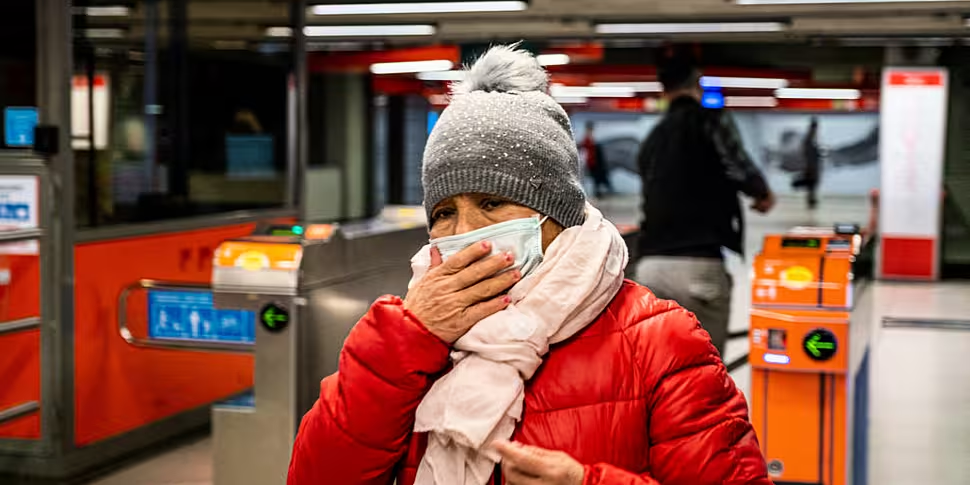Newstalk's Ciara Kelly was joined by Jack Lambert, a specialist in infectious diseases at The Mater Hospital and UCD.
He answered some common questions about the COVID-19 coronavirus.
What are the symptoms?
They are flu-like symptoms - people will feel fluish, have a cough, have non-specific respiratory symptoms like a sore throat.
It overlaps in symptoms with the likes of influenza (common flu) - meaning testing is needed to specifically identify the coronavirus.
What should somebody do if they're told to self-isolate?
You should common sense things. Avoid contact with other people in the house - avoid kissing them, touching them, sharing utensils etc....
There is a huge importance on making sure to use separate toiletries, toothbrushes and towels.
They should self-isolate in a bedroom, for example, and stay in that part of the house. Maybe use a separate bathroom to other people if they can within the home, and try to avoid physical contact with other family members.
If possible, collect food from the doorway of the bedroom and similar things to try and minimise all physical contact.
If somebody is feeling very unwell, what should they do?
Going straight to the emergency department is a bad idea.
The first port of call is to phone your GP to get advice.
If the symptoms are more serious, contact the emergency services.
Contacting the emergency services in advance means they can prepare by putting on protective equipment and prepping the emergency room ahead of time.
The worst thing would be to have an ambulance or patient showing up in an emergency department that is not prepared.
Are there medications people can use to mitigate their symptoms?
Unfortunately, this is a virus for which there's no vaccine and no treatment to date.
20% of people get very sick and they may end up in a special care or intensive care unit. And about 3%, maybe 4% end up dying of this infection.
With influenza, there's a vaccine to prevent it, as well as tablets such as Tamiflu for treatment.
With COVID-19, there's no vaccine and there's no effective anti-viral treatment.
Are there special precautions people should take place if travelling?
Dr Lambert says he would consider wearing a mask if flying to badly impacted areas such as northern Italy - however, he wouldn't do so if travelling to areas where no cases or only a very small number have been confirmed.
He says it is important to use common sense, and to be aware of where you're travelling to - but for now the risk remains very low when travelling anywhere that haven't been badly affected to date.
"You shouldn't be wearing a mask if you're flying from Dublin to London, in my opinion.
"I think the chances of catching coronavirus on an Aer Lingus flight that's booked from Dublin to London is zero".
What can I do to protect myself?
Dr Lambert says people should not stand close to somebody who has the virus.
People generally cough up to six feet, therefore if you are six feet away from somebody who is sick "you're safe as far as I'm concerned."
Washing your hands and making sure you don't touch objects around that sick individual will also protect you.
Not touching your face and coughing or sneezing into the crook of your elbow will also help.
How long should I wash my hands for?
People should wash their hands for around two minutes - making sure they washing palms, fingers and the back of the hand.
Are Ireland's containment procedures robust?
Dr Lambert says he is "not confident" that Irish structures around containment are robust.
"But it's one of those situations - how careful can you be?
"All it's going to take is just one person making it through the system".
Should I go to mass gatherings?
At the moment there should be no restrictions, he says.
"At the present time I wouldn't be closing down travel, I wouldn't be closing down mass gathering based on 'what if'".
More information on the coronavirus can be found here
Main image: People with masks on public transport in Milan, Italy | Image: IPA/ABACA/ABACA/PA Images
Reporting by Stephen McNeice and Jack Quann









